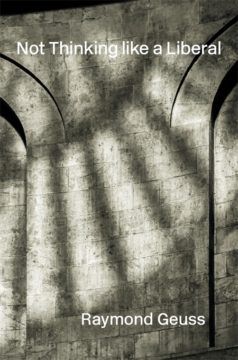 Nóra Schultz in Tocqueville 21:
Nóra Schultz in Tocqueville 21:
Reading Raymond Geuss’s Philosophy and Real Politics a couple years ago was like a breath of fresh air. Geuss was writing about exactly the things that many of us young, left-leaning students at Cambridge wanted to think through at the time: namely, how the rise of authoritarian politics in certain parts of the world seemed to have given Western liberalism a renewed importance and intellectual force, thereby shrinking the space for systematic critique of liberalism’s own damaging political and economic practices. And how, making matters more difficult, radical politics – especially at universities – had increasingly become an identity to assume, rather than a meaningful commitment to the historical notion of organising for large scale social transformation. Moreover, there was the frustrating intellectual problem of how to maintain the critical force of Marxist thought while acknowledging the historical failures of “actually existing socialism”.
Geuss seemed to have it all: he offered relentless criticism of liberalism, but without the reactionary baggage present in some fashionable works of “post-liberalism”; he showed a way of thinking about politics through a non-sectarian, anti-utopian Marxist lens; and he conveyed a deep knowledge of the history of political thought and philosophy. The combination was bound to impress. It was simply inspiring to see a vision of political philosophy that was both politically radical, and defined with reference to the real world rather than abstract, value-driven debates. Moreover, Geuss’s realism seemed to offer both new avenues of theoretical research, and the (re-)discovery of marginalised texts and authors.
More here.
